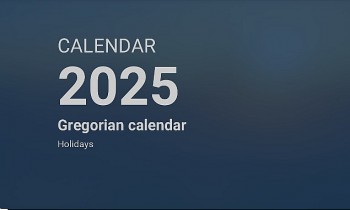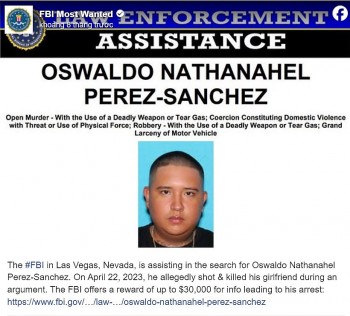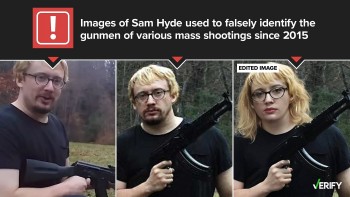Who is Mohamed Hassan? A Student Plotted 'Mass Casualty Attack' Targeting Jews
The FBI this week arrested Abdullah Ezzeldin Taha Mohamed Hassan, an 18-year-old student at George Mason University, in connection with an alleged plot targeting Jewish individuals, as revealed in court documents.
The investigation began in May when the Fairfax County Police Department notified federal authorities of an anonymous tip. The tip identified an X account (formerly Twitter) that exhibited behavior described as "radical and terrorist-leaning," according to an affidavit supporting the criminal complaint and arrest warrant filed against Hassan in the U.S. District Court for Virginia.
| Other recent terror attacks against Jews in New York have been stopped by authorities. In September, a suspect who was trying to enter the United States to attack an ISIS-supporting Jewish center in Brooklyn was apprehended in Canada. Additionally, a neo-Nazi was charged in July with organizing mass attacks against Jews in New York City by giving Jewish children poisoned candy. |
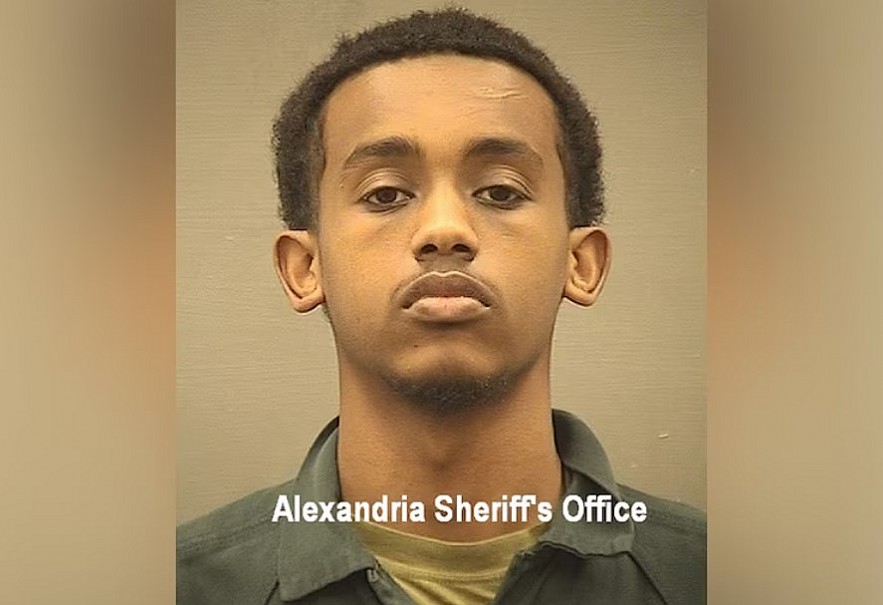 |
| Mohamed Hassan |
Background of Mohamed Hassan
Mohamed Hassan, a student at George Mason University, was living off-campus in Falls Church, Virginia. According to court documents, he had previously been under FBI scrutiny.
In 2022, the FBI interviewed Hassan about his online activities, which included posts supporting ISIS. The investigation resurfaced when Hassan allegedly began actively planning an attack in 2023, leveraging various online platforms and interacting with undercover FBI operatives.
Online Radicalization and Pro-ISIS Propaganda
According to an FBI affidavit, Hassan maintained multiple accounts on the social media platform X (formerly Twitter) that showed strong support for extremist groups like ISIS and al-Qaeda. The FBI linked these accounts to Hassan through an extensive investigation. The content of these accounts included pro-ISIS videos, propaganda material, and instructions on carrying out acts of terrorism.
In mid-2023, an undercover FBI informant connected with Hassan via one of these accounts. Over the course of several months, Hassan allegedly communicated with the informant across multiple platforms. He shared ISIS propaganda and discussed ways to travel to join ISIS, eventually recruiting the informant to carry out a "mass casualty attack."
The suspect, a national of Egypt living in Falls Church, Virginia, was in removal proceedings with the U.S. Immigration and Customs Enforcement
Planning the Attack on the Consulate General of Israel
Hassan’s alleged plot involved targeting the Consulate General of Israel in New York. This high-profile location was chosen due to its symbolic importance and the potential impact of the attack.
According to court documents, Hassan provided the informant with detailed instructions on bomb-making and the preparation of a martyrdom video. He allegedly instructed the informant to carry out the attack in a way that would maximize casualties and advised on purchasing firearms to avoid detection by authorities.
The informant claimed to be in New York when the suspect sent him instructions on how to make bombs and instructed him to target a Jewish-representing building before deciding on the Israeli consulate. According to reports, the bomb-making instructions suggested that, for shrapnel, packing the explosive with 30 mm aluminum ball bearings "will do the trick."
After the attack, Hassan instructed the informant on how to monitor the consulate and how to flee to ISIS territory. He also implied that he could "wreak havoc on them with an assault rifle" rather than a bomb. In order for Hassan to provide the video to ISIS, he also instructed the informant to livestream the assault.
Further, Hassan allegedly planned for the attack to be livestreamed, intending to distribute the footage to ISIS media outlets. This suggests a deliberate strategy to amplify the psychological and propagandistic impact of the attack.
Efforts to Avoid Detection
Hassan demonstrated significant efforts to avoid detection by law enforcement. He reportedly told the FBI informant that he was careful about his digital footprint because he believed he was already being monitored due to his past activities. This cautious approach included avoiding direct instructions and using encrypted communication platforms.
Hassan’s alleged statements also indicated an understanding of counter-surveillance tactics. For instance, he emphasized the need to purchase firearms in a way that would not leave a traceable record. Such actions reveal a level of operational sophistication that underscores the seriousness of the allegations against him.
Arrest and Legal Proceedings
Hassan was arrested on December 17, 2024, and remains in custody at the Alexandria Adult Detention Center in Virginia. He faces charges related to the dissemination of information on explosives and weapons of mass destruction. Court records show that Hassan has not yet entered a plea. Additionally, he is currently undergoing removal proceedings with U.S. Immigration and Customs Enforcement (ICE).
Following his arrest, George Mason University took immediate action by barring Hassan from campus property. The university has also enhanced security measures and emphasized its commitment to maintaining a safe environment for students and staff.
The Broader Implications
The case of Mohamed Hassan highlights several pressing issues:
-
The Role of Social Media in Radicalization
Hassan’s use of social media platforms like X to share extremist propaganda and recruit operatives underscores the ongoing challenge of combating online radicalization. Despite efforts by social media companies to curb extremist content, platforms continue to be exploited by individuals seeking to promote violence.
-
Counterterrorism Efforts by Law Enforcement
The FBI’s successful infiltration of Hassan’s network through undercover operations reflects the effectiveness of counterterrorism strategies. However, it also raises questions about the extent to which individuals like Hassan can operate undetected for prolonged periods.
-
The Threat of Homegrown Terrorism
Hassan’s activities serve as a stark reminder of the threat posed by homegrown terrorism. Even individuals residing in the U.S. and engaging in seemingly ordinary activities, such as attending college, can harbor intentions to commit acts of mass violence.
Conclusion
The arrest of Mohamed Hassan has brought to light a chilling example of homegrown radicalization and the persistent threat posed by extremist ideologies. As the case proceeds through the legal system, it serves as a critical reminder of the importance of vigilance, both online and offline, in identifying and addressing the root causes of terrorism. It also underscores the necessity of robust law enforcement efforts to disrupt plots before they can be carried out. The broader implications of this case will undoubtedly shape discussions around counterterrorism policies and the fight against extremism in the digital age.
Background on Mohamed Hassan
Mohamed Hassan is a 20-year-old student enrolled at a college in Virginia. Little is known about his personal life, but preliminary reports suggest he is of Middle Eastern descent, a factor that has already led to debates about potential profiling in law enforcement practices. Described by some acquaintances as quiet and studious, Hassan reportedly kept a low profile during his time on campus. However, investigators allege that beneath this seemingly normal exterior lay a growing fascination with extremist ideologies.
Authorities claim that Hassan used encrypted communication platforms and social media to engage with radical content. This behavior, they argue, set the stage for his alleged plan to target the Israeli consulate in New York—a high-profile institution representing Israeli interests in one of the busiest cities in the world.
The Allegations: Planning a "Mass Casualty Attack"
The central allegation against Hassan is that he conspired to carry out a mass casualty attack. According to law enforcement officials, the plan involved extensive reconnaissance, acquisition of materials, and the coordination of resources to execute the attack. The goal, they claim, was to inflict significant harm, disrupt diplomatic relations, and garner attention for his ideological beliefs.
The FBI and local law enforcement became aware of Hassan’s activities through intelligence monitoring and tips from an anonymous informant. During their investigation, authorities reportedly uncovered alarming communications in which Hassan discussed potential methods for carrying out the attack, including the use of explosives and firearms. Evidence also suggests that he had conducted online searches related to the security measures at the Israeli consulate and had been mapping out logistical details for the plot.
Legal and Judicial Proceedings
Hassan was apprehended in a joint operation involving federal and local law enforcement. He now faces multiple charges, including conspiracy to commit terrorism, possession of explosive materials, and attempts to support a foreign terrorist organization. If convicted, Hassan could face decades in prison.
His defense team has argued that the evidence presented so far is circumstantial and that Hassan may have been entrapped or misled by individuals posing as extremists online. They contend that his discussions, while troubling, may not have been serious plans but rather hypothetical musings or the result of youthful naivety. The case is expected to be closely watched as it proceeds through the courts.
What Motivated the Alleged Plot?
Understanding what drove Hassan to allegedly plan such a violent act requires examining the potential influences in his life. Experts in counterterrorism and psychology point to a combination of factors, including online radicalization, geopolitical grievances, and personal vulnerabilities.
Online Radicalization
In recent years, online platforms have become fertile ground for extremist groups seeking to recruit and radicalize individuals. These groups often exploit feelings of alienation, anger, or ideological alignment to draw vulnerable individuals into their orbit. Investigators believe Hassan may have been exposed to extremist propaganda that glorified violence and framed attacks on Israeli interests as acts of resistance.
Geopolitical Grievances
The Israeli-Palestinian conflict has long been a polarizing issue, with strong emotions on both sides. Hassan's alleged plot might have been motivated by a perception of injustice regarding this conflict. It’s worth noting that many young people across the globe have expressed frustration over perceived inequalities and unresolved issues in the Middle East, though the vast majority do not resort to violence.
Personal Vulnerabilities
Hassan’s age and stage of life may also have made him more susceptible to radicalization. College students, while often resilient and idealistic, can also be vulnerable to external influences as they seek to define their identities and beliefs. In Hassan’s case, investigators are exploring whether feelings of isolation or disillusionment played a role in his alleged turn to extremism.
The Role of Colleges in Countering Radicalization
The allegations against Hassan have reignited debates about the role of educational institutions in preventing radicalization. Colleges are often celebrated as spaces for open dialogue and intellectual growth, but they can also become breeding grounds for extremist ideologies if proper safeguards are not in place.
Awareness and Early Intervention
One potential solution is increasing awareness among faculty and staff about the signs of radicalization. By identifying students who exhibit troubling behavior, colleges can intervene early and connect them with counseling or other support services.
Promoting Dialogue
Encouraging open discussions about global issues, including contentious topics like the Israeli-Palestinian conflict, can help students process their emotions and viewpoints in a constructive manner. When young people feel heard and understood, they may be less likely to turn to extremist ideologies.
Partnering with Law Enforcement
Educational institutions can also work closely with law enforcement to address potential security risks without infringing on students’ civil liberties. Establishing trust and communication channels between colleges and authorities is critical in this regard.
Civil Liberties and the Fine Line Between Security and Privacy
Hassan’s case highlights the challenges of balancing security concerns with the preservation of civil liberties. Critics argue that aggressive surveillance tactics can lead to violations of privacy and disproportionately target certain ethnic or religious groups. At the same time, proponents of such measures emphasize the need to prevent violent acts before they occur.
The debate underscores a broader societal challenge: how to safeguard freedom while addressing genuine threats. Hassan’s case may serve as a test for how the legal system navigates these competing priorities in an age of heightened security concerns.
Broader Implications
The case of Mohamed Hassan is not just about one individual—it is a reflection of larger trends and challenges. The rise of online extremism, the global impact of geopolitical conflicts, and the vulnerabilities of young people in an increasingly connected world all converge in this story. It also raises difficult questions about how to detect and prevent acts of violence without stigmatizing communities or infringing on basic rights.
Conclusion
As the legal proceedings against Mohamed Hassan unfold, the case will continue to draw attention to issues of radicalization, security, and civil liberties. Regardless of the outcome, it serves as a sobering reminder of the complexities of modern threats and the need for multifaceted approaches to addressing them. From bolstering education and community support systems to enhancing cooperation between institutions and law enforcement, society must work together to prevent tragedies while upholding the principles of justice and freedom.
 Who Is Hailey Welch And Where is Hawk Tuah Girl Now? Who Is Hailey Welch And Where is Hawk Tuah Girl Now? Hailey Welch, widely recognized as the "Hawk Tuah" girl, has been notably silent over the past two weeks. Her last known activity was on December ... |
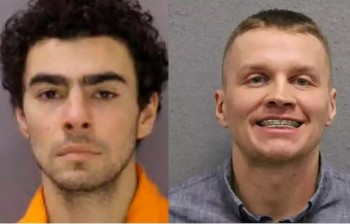 Who Is Nathan Mahoney? Luigi Mangione 'Copycat' Stabs President of Anderson Express Inc. Who Is Nathan Mahoney? Luigi Mangione 'Copycat' Stabs President of Anderson Express Inc. In a chilling case that has drawn national attention, 32-year-old Nathan Mahoney stands accused of stabbing Erik Denslow, the president of Anderson Express Inc., during ... |
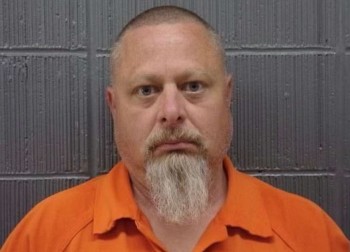 Who is Richard Allen, Delphi Murders: A 130-Year Sentence and the Shocking Details Who is Richard Allen, Delphi Murders: A 130-Year Sentence and the Shocking Details This article delves into who Richard Allen is, his background, the events surrounding the Delphi murders, and his sentencing to 130 years in prison. |
 Who is the Masked Groper Who Molested Teenage Girls/Woman in Queens, NY Who is the Masked Groper Who Molested Teenage Girls/Woman in Queens, NY A portrait of a masked man who sexually assaulted three teenage girls and one woman in a Queens neighborhood in just twenty minutes has been ... |




